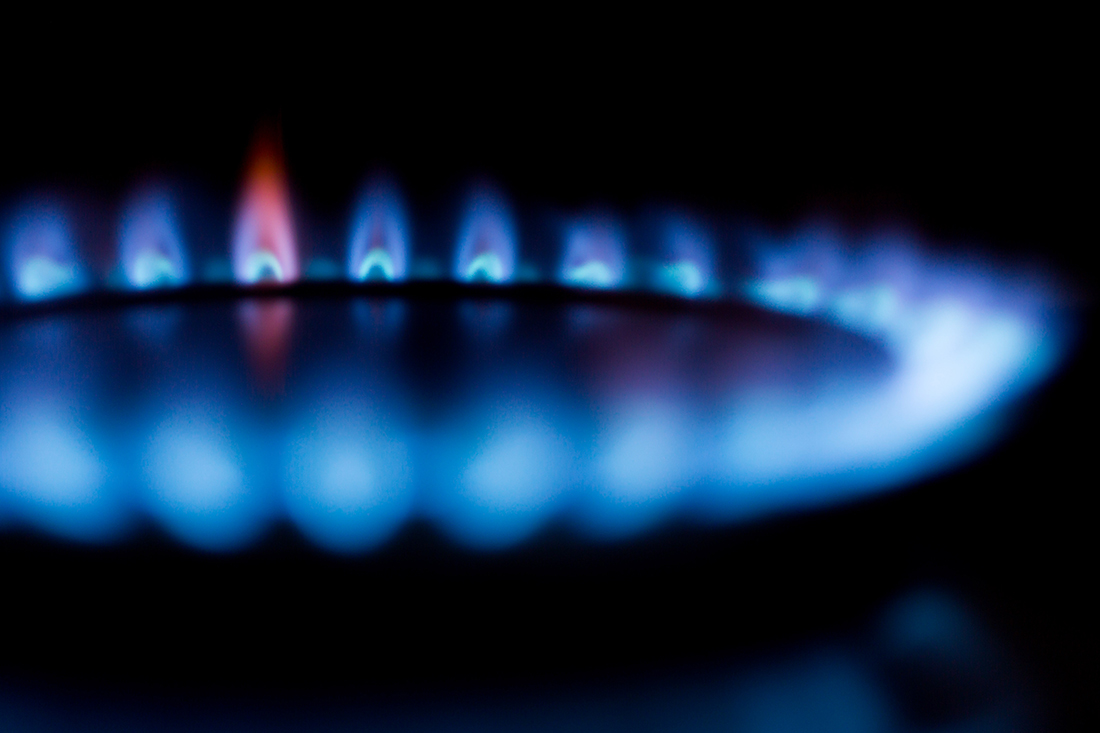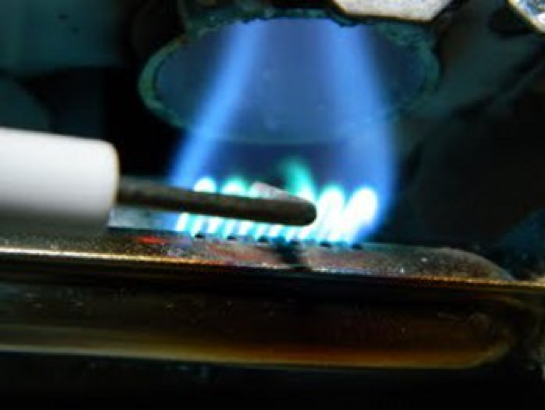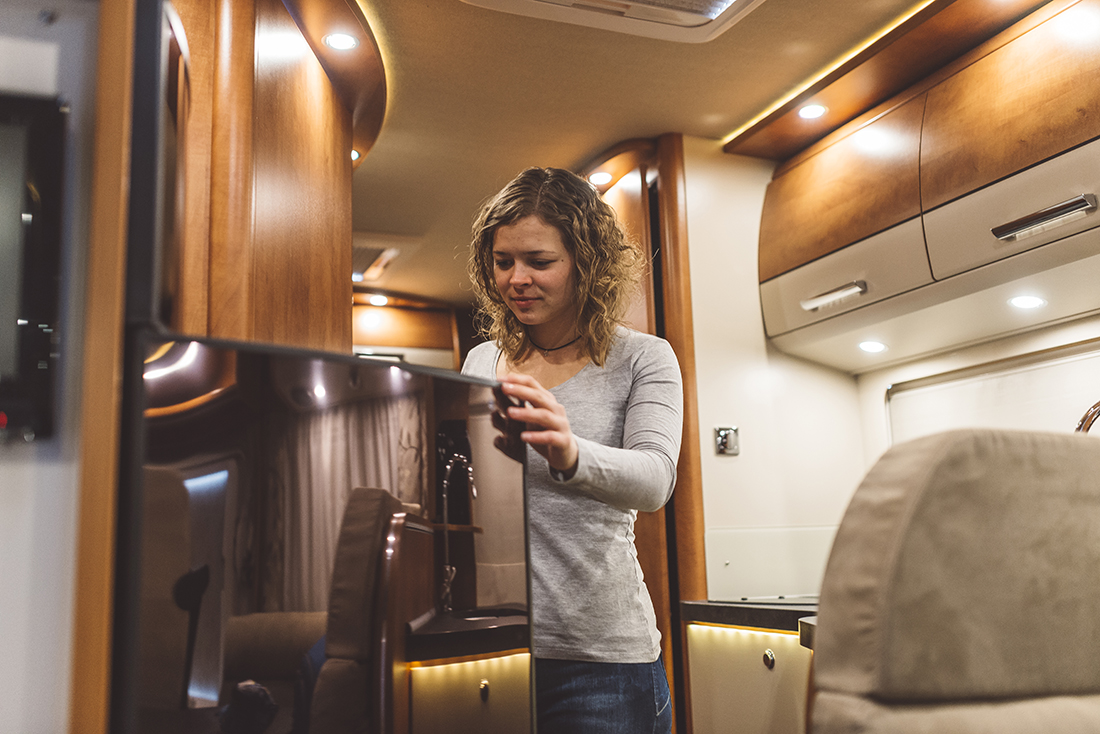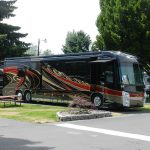Hi, Mark My Words readers! This month, we’ve got questions on fridges and propane leaks, along with a maintenance reminder about your rig’s AC power system. Remember to send your RVing questions to [email protected].

Photo: Escapees
Hi Mark,
We just replaced our Norcold refrigerator on a used RV we just purchased with only 23,000 miles on it. Ugh! Do you recommend leaving it on while plugged in at home between trips, or will that wear out the refrigerator quicker?
Thank you so much,
Diane
Hi Diane,
RV absorption fridges are designed for intermittent use, so it’s fine to turn it off when the RV is not being used. Make sure you get all the food out and prop the door open so air can circulate. Start the fridge a day ahead of time to give it a chance to cool down before loading food for a trip.
These fridges operate on an absorption system that depends on convection and gravity to move the refrigerant around inside the cooling unit. For that reason, they’re very sensitive to off-level operation. If you travel with your fridge on, be aware that a brief stop at a rest stop or store parking lot where the RV is not level can damage the fridge in as little as 15 to 20 minutes. This damage is cumulative and is a leading cause of premature fridge failure. Anytime the fridge is running, the RV needs to be reasonably level. (Reasonably level means no more than 1/2 a bubble off on a typical RV level gauge). If you need to park for a short time in an off-level situation, shut the fridge off until you leave.
Did you know that there’s an RV gadget out there that will protect your fridge from damage if you inadvertently run it off-level? It’s called the ARP, and you can check it out at www.arprv.com. I have one and really like it! No more worries about whether or not the fridge is “level enough.” Here’s a link to a product review I did some years ago.

Illustration/Getty Images
Hi Mark,
I have owned my Class C motorhome for about 14 years. During the first 10 years when I would have the rooftop AC on the AC from time to time would pause for a few seconds, like running at half speed. For the most part, the AC worked fine, so I wasn’t really too concerned. Then one day three or four years ago I was in the electrical control box, I don’t remember why, and I happened to put a screwdriver on the screw to the AC hot lead in the circuit breaker. This screw was loose. Since the day I tighten it, the AC never paused again.
Thanks,
Ted
Hi Ted,
That is something that all RVers should consider doing from time to time: tighten all electrical connections in the AC breaker box. Those boxes were designed for residential use, and not for the high vibration environment in an RV. Thanks for the tip and reminder!
It’s easy to do! Just unplug the RV from shore power and make sure your inverter is off (if you have one). Remove the cover from the AC breaker panel and use a screwdriver to make sure that all the screws on breakers and buss bars are tight. It’s something you should do every few years, or if you experience odd operation of an AC outlet or appliance.
Mark,
We own a 2016 fifth-wheel and have in the last year experienced a propane leak on two occasions while not using the furnace. The gas detector and smell alerted us to the leak. I could find no external leak with a spray bottle of soapy water. While this is an intermittent issue, I suspect some sort of controller problem where the furnace calls for gas while not in use. At the time, the only reason the bottles were open was for the stove as we weren’t using the propane for furnace or water heater. Also, the two incidents weren’t at the beginning of a camping duration, as the bottles were opened, but at the midpoint of our campsite stay. Does this sound like a faulty controller issue? Since it’s very rare, how would you troubleshoot this? I’m sure the dealer would change something and call it good, but not actually be able to confirm the culprit.
Thanks,
Russel

Photo: Pexels
Hi Russel,
That’s a very serious issue! Normally, if you have a leak, it leaks all the time, so it’s easier to find. Yours is intermittent and apparently a fairly large leak, since it sets the alarm off. While anything is possible, I doubt that the furnace is the culprit, as the combustion chamber is a sealed unit that vents to the outside of the rig, so if that gas valve was leaking, you probably wouldn’t smell it inside. Same with the water heater. The fridge may be a source, as it shares common air space with the interior. Regardless, you need to get that diagnosed ASAP, and I strongly urge you not use the RV until it is fixed.
Does your RV have slides, and is the kitchen or fridge in a slide? If so, there has to be a flexible gas line going to the slide. That’s the place I’d start looking. If you can’t find the leak, take the rig to an RV service facility and have the propane system tested for leaks and proper regulator pressure. They can use a sniffer to narrow down the problem area if they can get it to leak. Also, inspect the stovetop or oven. Look for a loose connection at the gas inlet and also at the burner control valves under the range top.
This kind of problem can kill you and/or burn down your rig. If you must use the RV, keep the propane shut off at the tanks and don’t use it at all until it’s fixed.
Mark,
I just read your article and it said to contact you with questions. We have a propane refrigerator in our RV. It lights and starts cooling. Then we hear a whooshing sound and sometimes it keeps working. Sometimes not. Sounds like a small explosion of propane.
We just replaced the burner. Any ideas of what it might be? Regulator? I’m at my wits end!
Liz
Hi Liz,
My first suggestion would have been to clean the burner, but you replaced it, so it should be fine. Do check the ignitor electrode to make sure it’s clean and about 1/8-inch from the metal burner. This electrode also senses “flame lit” so make sure it’s in the flame. If it’s not right, it can cause the fridge burner to cycle off and on. I’ll bet that’s what’s going on with yours. This pic shows proper electrode placement and flame shape and height.

Photo courtesy of Mark Warmouth
If that doesn’t fix it, a faulty propane regulator can cause symptoms like that, most RV shops can test it with a manometer (a special pressure gauge). It can also be a fault in the refrigerator control board, or a loose connection, either where the ignitor wire attaches to the control board, or between the 12-volt gas valve and the control board.




